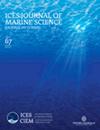渔业科学的学习、思考、分享和跨界合作
IF 3.4
2区 农林科学
Q1 FISHERIES
引用次数: 0
摘要
渔业科学和实践具有挑战性,需要跨界学习、思考和分享。跨界的概念可以被描述为某种形式的多学科性(如跨学科性、跨学科性),但这本质上意味着所跨越的边界是纯粹的学科性质。在我们的大部分教育历程和职业生涯中,我们一直在跨越其他各种边界(即领域、地区、学科、部门、领域和知识体系),我们对自己的生活经历进行了反思,重点是确定参与不同类型跨界活动的益处和挑战。我们认为,走出我们的舒适区和专业领域(如鱼类生态学),与其他学科(如各种社会科学)的同事以及利益相关者和决策者一起积极倾听和学习,丰富了我们的个人和职业生活。我们从跨界工作中学到了很多,并鼓励其他人,尤其是职业生涯初期的专业人员,也这样做。表面上看似遥不可及的桥梁,实际上可能提供了思考特定问题或主题的新方法,为可持续渔业管理和保护提供了可操作的科学。许多我们认为最成功的项目都是跨越边界的项目,我们在本文中将举例说明。有必要让下一代问题解决者做好准备,参与跨越边界的工作,并庆祝这些努力在渔业科学和实践中取得的有意义的进步。确保解决可能制约跨界的制度和文化障碍,同时支持从事此类工作的人,将是应对当今和未来海洋和淡水系统中许多渔业和水产科学挑战的关键。本文章由计算机程序翻译,如有差异,请以英文原文为准。
Learning, thinking, sharing, and working across boundaries in fisheries science
Fisheries science and practice are challenging and require learning, thinking, and sharing across boundaries. The idea of boundary crossing can be described as some form of multiple disciplinarity (e.g. interdisciplinarity, transdisciplinarity), yet that inherently implies that the boundaries crossed are purely disciplinary in nature. After working across various other boundaries (i.e. realms, regions, disciplines, sectors, domains, and knowledge systems) for most of our educational journeys and professional careers, we reflect on our lived experiences with a focus on identifying the benefits and challenges of engaging in different types of boundary crossing. We submit that our personal and professional lives have been enriched by stepping outside of our immediate comfort zones and expertise (i.e. fish ecology) and engaging in active listening and learning with colleagues in other disciplines (i.e. various social sciences) and with stakeholders and policymakers. We have learned much from working across boundaries and encourage others, especially early career professionals, to do the same. What may superficially appear to be a bridge too far may in fact provide novel ways of thinking about a given issue or topic that generates actionable science for sustainable fisheries management and conservation. Many of the projects that we consider to be our greatest successes represent ones that involved boundary crossing, examples of which we provide in this essay. There is a need to prepare the next generation of problem solvers for engaging in boundary crossing and celebrating examples of where such efforts have led to meaningful advances in fisheries science and practice. Ensuring that institutional and cultural barriers that may constrain boundary crossing are addressed while also supporting those doing such work will be key to address the many fisheries and aquatic science challenges of today and tomorrow in both marine and freshwater systems.
求助全文
通过发布文献求助,成功后即可免费获取论文全文。
去求助
来源期刊

ICES Journal of Marine Science
农林科学-海洋学
CiteScore
6.60
自引率
12.10%
发文量
207
审稿时长
6-16 weeks
期刊介绍:
The ICES Journal of Marine Science publishes original articles, opinion essays (“Food for Thought”), visions for the future (“Quo Vadimus”), and critical reviews that contribute to our scientific understanding of marine systems and the impact of human activities on them. The Journal also serves as a foundation for scientific advice across the broad spectrum of management and conservation issues related to the marine environment. Oceanography (e.g. productivity-determining processes), marine habitats, living resources, and related topics constitute the key elements of papers considered for publication. This includes economic, social, and public administration studies to the extent that they are directly related to management of the seas and are of general interest to marine scientists. Integrated studies that bridge gaps between traditional disciplines are particularly welcome.
 求助内容:
求助内容: 应助结果提醒方式:
应助结果提醒方式:


